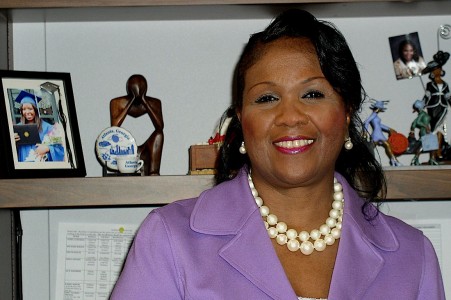Workshop for parents
What: “Content of IEPs and 504s: Dude … Where’s My Signature Page?”
A free workshop for parents, staff and caregivers to explain the Individualized Education Program and 504 plans for children and youth who receive special education services
Who: Sponsored by the Ann Arbor Parent Advisory Committee for Special Education, or AAPAC
When: 7-9 p.m. Thursday, Nov. 18, 2010
Where: Washtenaw Intermediate School District Teaching and Learning Center, 1819 South Wagner Road, Scio Township (between Liberty Street and Scio Church Road)
Speaker: Kelly Orginski of Michigan Alliance for Families will discusses understanding the Present Level of Academic Achievement and Functional Performance statement; writing measurable goals and objectives, support services and plan implementation and recent changes to the IEP form.
Details: RSVP via e-mail to Melany Raubolt at mraubolt@hotmail.com
Or visit the AAPAC website.
Editor’s note: This is the first in a series of articles about school-related community groups that are approved by the Ann Arbor Board of Education. Today, we look at the Ann Arbor Parent Advisory Committee for Special Education.
By Casey Hans
AAPSNews Service
Once upon a time, parents in public school settings felt alone as they navigated the often-complicated process of helping their children with special needs.
About 10 years ago, a group of Ann Arbor parents of children with autism banded together and found support in numbers. They began educating themselves, helping each other and working with The Ann Arbor Public Schools on issues of special education and support services.
The Ann Arbor Parent Advisory Committee for Special Education, or AAPAC, formed in the spring of 2001. Today, they have representatives at each school building and a governing board that meets monthly with the parent community and also with school administration.
“By talking to each other, we were able to affect change,” explained Barb Byers, one of the organizers of the group who is an AAPAC officer. “We’ve made progress over the years.”
Byers said the group “advocates for the kids with the most needs. We’re all members of the community – and some of us need more than others.”
The AAPAC is one of several district-approved committees that are active at the board level, presenting regular updates at board meetings.
The group encourages schools in peer mentoring between special and general ed students, such as an interactive theater program at Clague Middle School, an adaptive physical education class at Forsythe Middle School and a reading buddies program at Haisley Elementary. They also offer workshops for parents, sponsor disability workshops for all fourth-graders and often support each other by attending Individualized Education Plan, or IEP, hearings, serving as independent listeners.

When merited, IEP contracts are written for individual students that set goals, lay out how to assist the student and make appropriate accommodations for his or her learning.
“All is individualized to the child,” explained another officer, Melany Raubolt. “We get together to talk to each other. We’re there to help parents understand the process at the school.”
Scott Zeleznik, co-chairman of the AAPAC board, moved to Ann Arbor from California, where he said most families hired attorneys to navigate the system for their special needs children. It’s not that way here, he said. “The environment here is much more collaborative.”
Deb Mexicotte, the president of the Ann Arbor Board of Education, was one of the founders of the Ann Arbor PAC group. The parent of an autistic son who was 9 years old when she got involved, Mexicotte said parents at that time were frustrated with both local and county systems.
“There was a history of an adversarial relationship with parents,” Mexicotte recalled. “When the group formed, we arranged to be an association of the school board so we could just get the voice out there. Now, we are light years ahead of where we were. What we’ve really done is make special education an integral part of every conversation we have.”
Mexicotte said the group has served as a network for Ann Arbor parents and has also been a catalyst for ongoing discussion. “We owe each other the respect to carry through with these struggles,” she added. “We have to be willing to listen and also question. That’s what we’re getting better at.”
In 2003, the AAPAC encouraged Mexicotte to run for the school board. Although she now deals with broader district issues, Mexicotte said the group felt it was important to have someone serving who understood the system. She was just re-elected last week to another school board term.
Newly appointed Assistant Superintendent for Student Intervention & Support Services Elaine Brown came aboard in August. In addition to their own monthly member meetings, AAPAC officers meet monthly with Brown and quarterly with the superintendent to share concerns and have an open dialogue.
Brown said she appreciates the AAPAC’s efforts. “I get a chance to know what the issue are and be ahead of things,” she said. “They really are a good group of people and I enjoy working with them. They keep the administration informed of parent issues and concerns. They also help parents to understand the special education process.”
The AAPAC group has been instrumental in working with SISS staff and the superintendent keeping open the flow of communication and moving toward more integration of special needs students to general ed classrooms.
“We want an inclusive environment as much as possible – we’re trying to have these conversations so parents, staff and the district are in alignment,” Brown said.
Brown said one of her goals is to improve technology in classrooms so that students with special needs have better access to general ed curriculum. She said the district is also working to become a better gatekeeper of IEPs, tracking of the process for each student. Co-teaching between special ed and general ed teachers has also begun and the district will do more training in that regard, she said.
Brown said the group is heavily represented with parents of autistic children and she’s hopeful that parents of children with other special needs will also join and help expand the AAPAC. Two parents are needed to represent Ann Arbor at the county-level PAC and there are also spots open representing individual schools.
Although it’s been years since she has led the AAPAC board, Mexicotte still finds herself using the term “we” when discussing it. “We’ve become an integral part of the conversation and have had an excellent relationship with the administration while speaking the truth,” she said. “We have gotten not quick, but lasting results.”
“It’s brought people together to understand – it’s brought understanding and civility to the discourse,” she added.
AAPAC monthly meetings occur on the first Monday of each month from 7-9PM at Skyline High School in room B329. Parents who are interested in receiving emails for more information join the AAPAC Yahoo group at http://groups.yahoo.com/group/A2PAC/ . The group’s website is: http://instruction.aaps.k12.mi.us/aapac/
NOTE: The April meeting of the AAPAC has been scheduled for April 11, 2011 from 7-9 p.m. at Skyline High School.
•••••••••••••••••••••••••••••••••••••••••••••••••••••••••••••••••••••••••••••••••••••••••••••••••
County faces special education millage renewal in 2011
In Michigan, public schools are required to provide special education services for children from birth through age 26, or until they graduate from high school. Ann Arbor homeowners pay a special education millage through the Washtenaw Intermediate School District as part of a countywide levy.
The current approved Special Education millage is 4.5 mills, which supports programming for the more than 7,000 students in the 10 local school districts in the county including Ann Arbor. This special education millage can be renewed, returned to the original levy level or increased by voters.
Declining property values create a problem, said Deb Mexicotte, a founder of the Ann Arbor Parent Advisory Committee for Special Education and current president of the Ann Arbor Board of Education, Lower values mean less taxes are collected that can be used for these mandated services.
Special education services draw out of the general education budget, then are reimbursed through this county millage. Mexicotte said Ann Arbor now receives about an 80 percent reimbursement for special education services. Declining property values will affect that.
Voters will face a ballot issue relating to special education services in the coming calendar year. WISD officials must determine their approach and put a special education renewal before voters by November 2011.



2 Trackbacks / Pingbacks
Comments are closed.